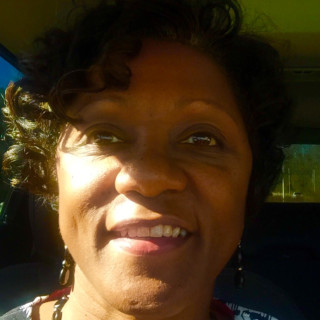
Nursing is considered the most ethical and honest profession in the U.S. To be a nurse as described by Florence Nightingale is a “divine calling.” After 34 years in nursing, I realize it is more than health promotion and prevention, but also a call to justice and advocacy for the “least of these,” those most vulnerable who sit on the margins of society. How does a nurse become the voice for souls often overlooked and devalued?
As a cardiology nurse, I am in spaces where life-and-death decisions are often made such as to implant organs or medical devices. Sometimes, I wrestle emotionally and intellectually with aspects of health care decision-making. Particularly given they are made in the context of a health care system that has been erected and massaged into a structure that perpetuates health disparities, inequities, and mistrust.
And as a Black nurse, I have the right to be a catechizing voice in health care. I am empowered by people like Martin Luther King, Jr., Rosa Parks, Malcom X, John Lewis, and others. These civil rights leaders inspire me to be courageous and persistent, yet tactical, despite what may seem hopeless in the fight against systemic racism. Their lives provide Blacks a spiritual lens into social justice. They believed in a better tomorrow and now we have witness to the results of their labor.
While the civil rights movement improved things like segregation, voting rights, and fair housing, it was not successful at relegating the societal construct of racism on Black lives. This societal construct has led to unequal treatment as it relates to ongoing poverty, discrimination, and violence.
The ongoing violence against Blacks and the unjust killings of Blacks like Trayvon Martin, Eric Garner, Sandra Bland, Michael Brown, and George Floyd, sanction me to utilize the nursing profession as a platform to improve the health of Black communities. I have a responsibility to be a voice in a system built on the injustices of the Tuskegee Study, the legacy of HeLa cells, and has fueled beliefs such as the AIDS conspiracy.
Despite ongoing medical breakthroughs, Blacks are reluctant to seek health care. This hesitation stems from both distrust as well as fear. In the case of HIV/AIDS, many Black communities rumored it was engineered by the U.S. government. A sociological study reported that some Blacks have contrived HIV/AIDS was developed as a form of genocide against people of color. Some Black communities have speculated that COVID-19, too, was developed to destroy the Black race.
Anti-Black racism is systemic in and out of health care. Blacks are five times more likely to be imprisoned than whites. This statistic provides a visual for our prison system: a tapestry of Black bodies. Young Black males that dropout of high school have a daily jailing rate of 22% which is more than any other racial/ethnic group. Our lives are not compartmentalized and racism is intertwined in every aspect such as housing, education, and our financial institutions. Racism is a disease and called by many a pandemic.
If we ponder 2020 and COVID-19, we realize even in a pandemic Blacks inherently have a higher mortality rate. They have the highest incidence of heart disease, hypertension, diabetes , obesity and HIV, which places Blacks at a higher risk for contracting COVID-19. Our risk becomes exponential because of our vocation. Often, Blacks and people of color are working in the bowels of COVID-19 as essential workers in the food industry, public transportation, and environmental services of our hospitals. Being Black or having these comorbidities is not the cause of COVID-19, it is a compilation of systemic racial factors.
A significant proportion of Blacks are uninsured or underinsured. The mere existence or nonexistence of a race in the world’s wealthiest country predetermined by the lack of health and wealth. COVID-19 personifies a race subjugated from birth and now in death. Blacks, like others stricken by COVID-19, die alone and in isolation, which metaphorically emulates our dehumanization.
COVID-19 not only highlights the disparities of the poor, aged, and of Blacks, but it shines light on the vulnerabilities of an entire health system. Nurses on the frontlines of COVID-19 are challenged to perform in ways they have never before. COVID-19 has exposed the weaknesses of our technology, academics, and human intellect.
Nurses now find themselves akin to those most venerable and disparaged. Nurses are feeling their voices and lives don’t matter like the “least of these” as they plead for PPE. The pandemic is causing many nurses to stand at a crossroads of leaving — or at most questioning — their career choice. Nurses have a choice to stay or leave their profession — unlike their patients who cannot escape their Black skin. America cannot afford to lose nurses given the perpetual shortage. Nursing is the backbone of our health care system and the largest health care workforce in the U.S., standing almost four million strong.
Nurses need to be a prophetic voice for health inequalities and unequal treatment. Particularly Black nurses because our voices are needed to permeate spaces of injustices. Martin Luther King, Jr said, “Injustice anywhere is a threat to justice everywhere.” We must combine our voices as many remain silent on the issues of injustices and discrimination. If not us, then who will sound the alarm to change a system of structural racism that is pervasive and persistent, and that evades every facet of our society? We are the most trusted profession and well-positioned to be a voice of healing. Nurses, we must be the change we wish to see in health care.
The following are ways nurses can use their voice to enact actionable change:
Political Action
Vote and encourage others to vote, particularly for those candidates that best align with platforms that support minorities. When feasible, we should run for public offices or assist others in getting elected.
Leadership
We must be intentional in securing Black leadership positions in the C-suite at hospitals, corporations, universities, and government.
Entrepreneurship
We must be the ones that own, operate, and manage, so as to create organizations that will meet the needs of Black communities.
Innovation
Our energies need to be focused on creating new methods, ideas, and products that will reduce racism and discrimination in every aspect of health care.
Networking
It is important to engage others by initiating, building, and maintaining social networks. Networking can lead to opportunities like research and publications.
Making Space
We have to learn to create spaces in the most unusual places for nurses and create new positions. As Antwan Jackson once said, “we are not here to take anyone’s place, they will just have to move over.”
Karol Harshaw-Ellis is a doctoral prepared nurse practitioner who works in a large academic medical center in the Southern part of the United States.





